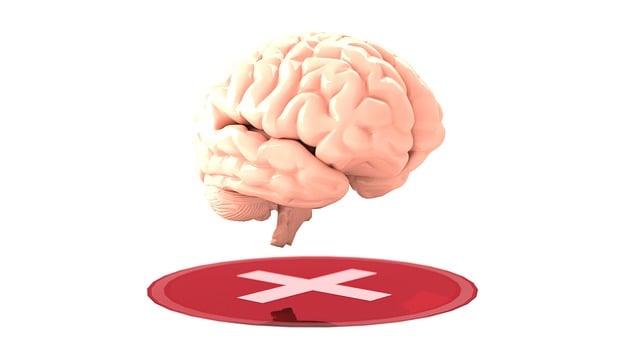Mental wellness is key to overall well-being, with therapy for adults and psychological testing playing vital roles in achieving optimal mental health. Psychological testing assesses thoughts, emotions, and behaviors, guiding personalized treatment plans including trauma support, emotional well-being promotion, and emotional regulation strategies. Social skills training complements this by teaching effective communication and interpersonal interactions, fostering resilience through "mind over matter" principles. Incorporating therapy for adults into self-care routines offers tools for managing stress, processing emotions, and enhancing coping mechanisms, ultimately promoting a healthy mindset and improved quality of life.
Mental wellness promotion is an essential aspect of holistic well-being. This article explores various facets of nurturing and maintaining a healthy mind, specifically focusing on adults. We begin by understanding mental wellness and its profound impact on daily life. Subsequently, we delve into effective therapy options tailored to adult psychological needs, highlighting the role of psychological testing in accurate assessment and treatment planning. Additionally, practical strategies for fostering a robust mindset are provided, emphasizing preventive measures for long-term mental health. Discover valuable insights on enhancing your mental wellness journey with these comprehensive guides, including relevant focus on therapy for adults and psychological testing.
- Understanding Mental Wellness and its Significance
- Therapy Options for Adult Psychological Well-being
- The Role of Psychological Testing in Assessment and Treatment
- Strategies for Promoting and Maintaining a Healthy Mindset
Understanding Mental Wellness and its Significance

Mental wellness is a crucial aspect of overall health and well-being, encompassing our emotional, psychological, and social state. It affects how we think, feel, and act in various situations, impacting our ability to cope with stress, make choices, and relate to others. Understanding mental wellness involves recognizing its significance in everyday life and acknowledging that it can fluctuate over time, influenced by a multitude of factors such as genetics, environment, and life experiences. Promoting mental wellness is essential for fostering emotional resilience and enhancing quality of life.
In the pursuit of optimal mental wellness, therapy for adults plays a pivotal role. Psychological testing is a valuable tool used to assess an individual’s cognitive abilities, emotional state, and behavior patterns. By identifying strengths and areas for growth, these assessments help in tailoring therapeutic interventions that support trauma support services, emotional well-being promotion techniques, and emotional regulation strategies. Such personalized approaches are key to fostering positive mental health outcomes and enabling individuals to lead fulfilling lives.
Therapy Options for Adult Psychological Well-being

In promoting adult psychological well-being, various therapy options play a pivotal role in enhancing mental wellness. One effective approach is psychological testing, which involves assessing an individual’s thoughts, emotions, and behaviors to identify underlying issues. These tests, often administered by licensed clinical psychologists, can pinpoint specific areas of concern, such as anxiety disorders, depression, or personality traits, guiding personalized treatment plans.
Beyond traditional psychological testing, social skills training stands out as a complementary therapy for adults. By focusing on interpersonal interactions and communication, this training equips individuals with the tools to navigate social situations more effectively. Integrating mind over matter principles into these sessions empowers clients to cultivate positive thinking patterns, thereby fostering resilience and improving overall mental health awareness.
The Role of Psychological Testing in Assessment and Treatment

Psychological testing plays a pivotal role in the assessment and treatment of mental health issues, particularly in therapy for adults. These evaluations provide a comprehensive understanding of an individual’s psychological well-being by measuring various cognitive, emotional, and behavioral aspects. Through structured assessments, therapists gain valuable insights into their clients’ thought processes, personality traits, and coping mechanisms, enabling them to tailor treatments accordingly.
The implementation of community outreach programs and development of mental wellness coaching programs can further enhance the benefits of psychological testing. By integrating these findings into therapeutic interventions, such as cognitive-behavioral therapy or mood management strategies, professionals can offer more personalized care. This holistic approach supports individuals in managing their mental health effectively, fostering resilience, and improving overall quality of life.
Strategies for Promoting and Maintaining a Healthy Mindset

Promoting a healthy mindset is an integral part of overall well-being. One effective strategy involves incorporating therapy for adults into one’s self-care routine. Professional counseling sessions can provide valuable tools and techniques to manage stress, process emotions, and enhance coping mechanisms. Through psychotherapy, individuals can explore underlying issues, gain insights, and develop personalized strategies to maintain mental wellness.
Additionally, fostering a positive mindset requires consistent practice of mind over matter principles. This involves challenging negative thought patterns and replacing them with realistic, positive affirmations. Engaging in regular exercise, mindfulness practices, and effective conflict resolution techniques further contribute to a robust mental health framework. Psychological testing can also play a pivotal role in identifying areas for improvement, offering tailored recommendations to strengthen one’s mental resilience.
Mental wellness is a cornerstone of overall health, and promoting it involves a multifaceted approach. From understanding the significance of mental health to exploring therapy options like psychological testing for adults, each section highlights essential strategies. By integrating these insights into daily life, individuals can foster a healthy mindset, enhancing their ability to navigate challenges and thrive in today’s world. Remember that seeking professional guidance through therapy and utilizing psychological testing are powerful tools for maintaining and improving adult psychological well-being.














